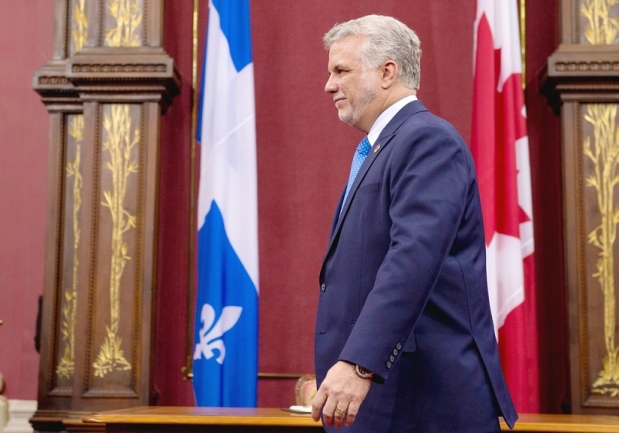For any head of a new government, cabinetmaking is hard enough. For Philippe Couillard, the task of selecting his ministers (to be unveiled Wednesday) is further complicated by a need to distance his government from the Quebec Liberal Party’s recent past — and from the possible futures of some of the party’s members.
While competence is an asset for a prospective cabinet minister, it’s not the most important qualification. Political considerations are.
A head of government tries to ensure that as many constituencies as possible are represented in the limited number of places at the cabinet table — two dozen, including the premier, in the outgoing Parti Québécois government.
The presence of women is increasingly important, especially in Quebec. Former Liberal premier Jean Charest achieved numerical gender parity in his cabinet from 2007 to 2009, and the outgoing government is headed by a woman, Pauline Marois.
Quebec Liberal cabinets must also reflect the linguistic and ethnic diversity of that party’s representation, which PQ premiers haven’t had to consider.
The head of government must make do with whatever material is provided by the electorate, which almost never elects members of the governing party from all the regions.
In the April 7 general election, Couillard’s party won 70 seats in the National Assembly — a majority, but the second smallest in nearly 50 years.
The Liberal seats are not evenly distributed throughout the province’s 17 administrative regions. They’re concentrated in the urban centres of Montreal, Laval and Quebec City, in the central Mauricie region and in the border regions. Elsewhere, however, Couillard has little or no Liberal representation with which to work.
Montreal Island gave Couillard 21 MNAs, or 30 per cent of his caucus. Many of them are cabinet material, but some may be passed over in favour of less-qualified colleagues from Quebec City and other swing regions where elections are decided.
In other circumstances, previous cabinet experience would be an asset for a prospective minister. But in the case of Couillard’s cabinet, it may be a liability.
The Liberals are returning to power after less than 20 months in the opposition, and that wasn’t enough time for them to renew their representation.
Not counting Couillard himself, who was health minister from 2003 to 2008, 18 Liberal MNAs served in Charest’s various cabinets. The more of them there are in Couillard’s, the more it will look like the old Charest government repudiated by the voters less than 20 months ago.
In particular, Couillard needs to distance his government from the Charest administration’s reputation for lax ethical standards. That will be harder to do if any of his cabinet choices is held personally responsible for illegal or unethical acts during the Charest regime.
Liberal fundraising practices during the Charest years are being investigated by the Charbonneau commission and by UPAC, the provincial anti-corruption unit.
Some current Liberal MNAs have been mentioned in public testimony at the Charbonneau inquiry, while others were to meet with UPAC after the election. And last week, Radio-Canada television reported that one Liberal MNA re-elected on April 7, whom it did not identify, is under investigation by UPAC.
The day after the election, Couillard promised that as premier, he will make “no compromise” on ethics. And he said “deep verifications” would be made before he appointed a minister.
This could cast suspicion over a prominent former minister who is left out of Couillard’s cabinet without a convincing explanation after being named in either the Charbonneau or UPAC investigations.
Couillard said it would take “established facts,” not mere allegations, for him to exclude someone from his cabinet. This implies that he would consider a prospective or appointed minister to be innocent until proven guilty.
The standard of proof in the court of public opinion, however, is somewhat lower. And in that court, Charest’s former party and its new leader may not be entitled to any benefit of the doubt.
[dmacpherson@montrealgazette.com->dmacpherson@montrealgazette.com]
Twitter: DMacpGaz































Laissez un commentaire Votre adresse courriel ne sera pas publiée.
Veuillez vous connecter afin de laisser un commentaire.
Aucun commentaire trouvé